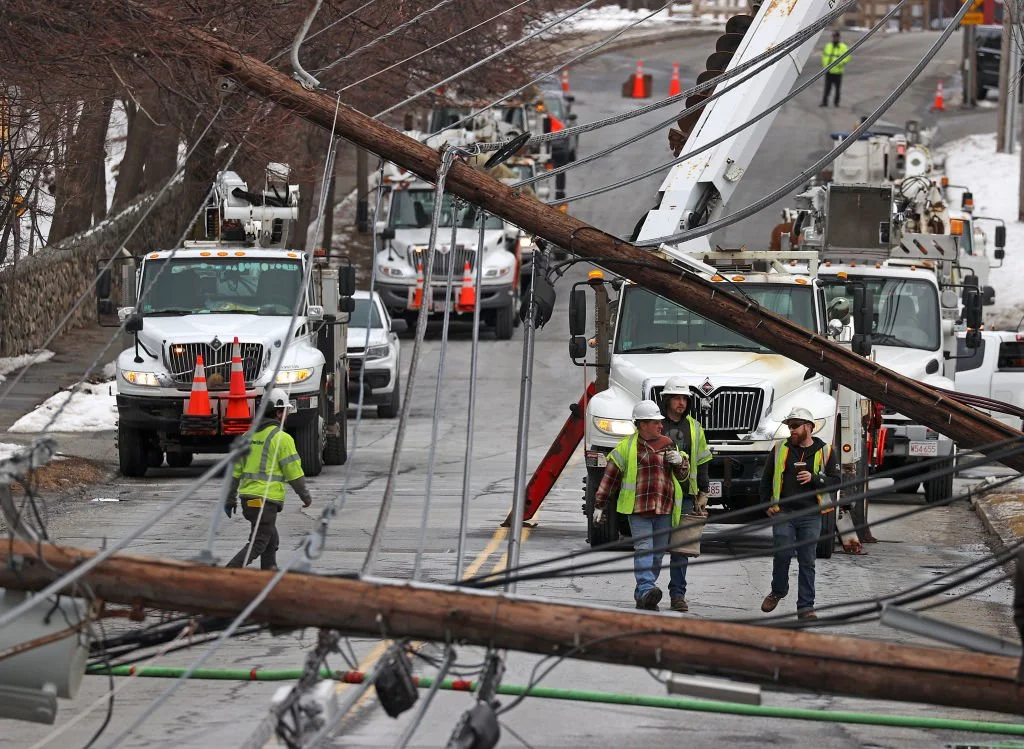-

Extreme Climate Impacts From Collapse of a Key Atlantic Ocean Current Could be Worse Than Expected, a New Study Warns
Disruption of the Atlantic Meridional Overturning Current could freeze Europe, scorch the tropics and increase sea level rise in the North Atlantic. The tipping point may be closer than predicted in the IPCC’s latest assessment. Check out the interesting global ocean currents graphics in this article.
-

Climate change is crushing winter fun
For many Americans, winter means ice skating, building snowmen and going skiing. But this year, many are missing out on the fun as the temperature stays stubbornly higher than normal. Warming winters tied to human-caused climate change pose an existential threat to seasonal activities and sports, which require sustained cold temperatures and often snow. Cold-weather communities across the U.S. are finding themselves affected by the unusually warm temperatures, forcing some events and traditions to be modified or canceled. Shrinking winter recreation seasons will have a massive impact on host communities, where winter sports represent multimillion-dollar industries that drive tourism and generate economic revenue.
-

EPA Reports ‘Widespread Noncompliance’ With the Nation’s First Regulations on Toxic Coal Ash
Coal ash is among the most costly of the long-term legacies left by more than a century of coal burning. The waste contains contaminants like mercury, cadmium and arsenic that can pollute the air and seep into groundwater. The contaminants are associated with cancer and other ailments. A glaring loophole already had allowed at least a half-billion tons of the waste to go unregulated. Now the agency says many of the facilities that are subject to the rules do not comply.
-

Five climate change solutions under the spotlight at COP28
It's not all doom and gloom at the COP28 climate summit. The Earth's climate is changing rapidly and urgent action is needed to avoid the most damaging consequences for people and nature. But there is hope, and delegates in Dubai are discussing several very concrete ways to limit warming. So what are some of these "solutions", and how are they progressing? Find out here.
-

Report Charts Climate Change’s Growing Impact in the US, While Stressing Benefits of Action
The Fifth National Climate Assessment, or NCA, is a peer-reviewed collaboration by more than 800 scientists from 14 federal agencies, universities and research institutions. It fulfills a mandate Congress put in place in 1990 for regular assessments of the risks of global climate change to the nation, meant to be delivered at least once in every presidential term. The NCA delivers a sobering catalog of climate change’s impacts in every corner of the United States—from battered coasts to parched cornfields to blazing forests.
-

US Regions Will Suffer a Stunning Variety of Climate-Caused Disasters, Report Finds
If there is one overarching message from the nation’s latest climate assessment, it is that nowhere will be spared. Hotter temperatures are coming to every corner of the country, as are weather extremes. Many regions are experiencing more frequent, heavier rains, while others are seeing worsening drought. Some are getting both. Everywhere, these changes are translating into greater stresses on Americans’ health through worsening heatwaves, wildfires, hurricanes, floods and the psychological toll of mounting disasters. “There is not a part of the U.S. that gets a pass on climate impacts,” one administration official said during a briefing on the Fifth National Climate Assessment, or NCA.
-

Individual actions you can take to address climate change
Humans are driving climate change. That means we humans can change our trajectory. While governments and businesses have a key role to play in reducing planet-heating emissions, individual actions matter, too. Many solutions can feel overwhelming, or far beyond what one person can tackle, but little changes made on a large scale can make a meaningful difference. Here NPR reports on individual actions that can make a positive impact and what you need to do to get started. Some require a little planning (think major home appliance replacement), while others might mean one less thing on your weekend to do (like skipping raking your leaves this fall).
-

This Brutal Summer in 10 Alarming Maps and Graphs
As global temperatures rapidly climb, humanity is seeing more and more of the disastrous effects scientists warned us about: fiercer heat waves, more intense wildfires, and heavier rain. The extremes of the past few months are but a preview of the ever-worsening pain we’ll endure if we don’t dramatically reduce carbon emissions. The 10 maps and graphs in this article vividly illustrate the global climatic chaos that’s unfolding now.
-

Apathy kills in the climate emergency
The results of a recent annual poll of Coloradans showed that their top concerns are the cost of living and housing affordability. Humans are facing the most dire threat to their existence since they appeared on the planet, but the climate crisis merited only a middle-of-the-pack placement in the poll, behind “government” and “over development.” This alarming apathy is present throughout the country. Meanwhile, global warming, which there is no serious doubt is the result of humans pumping greenhouse gasses into the atmosphere, is causing universal mayhem.
-

Nature is out of sync—and that’s reshaping everything, everywhere
Everything in nature—flowering, breeding, migration—lives and dies by a clock that is being recalibrated by climate change. We don’t yet know how severe the consequences may be.
-

Why America's outdated grid is a climate problem
Most of the U.S. electric grid was built in the 1960s and 1970s. Today, over 70% of the U.S. electricity grid is more than 25 years old, and that aging system is vulnerable to increasingly intense storms. In addition to the increasing age, the location of the existing transmission lines is a problem.
-

Rising electricity demand complicates electrification and decarbonization
No help for the climate will come from electrification and the transition to EVs and heat pumps without new carbon-free electricity generation.
